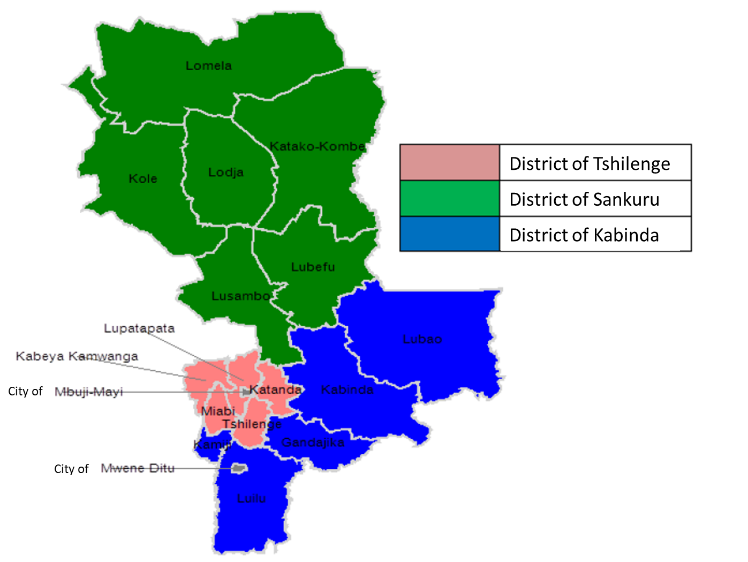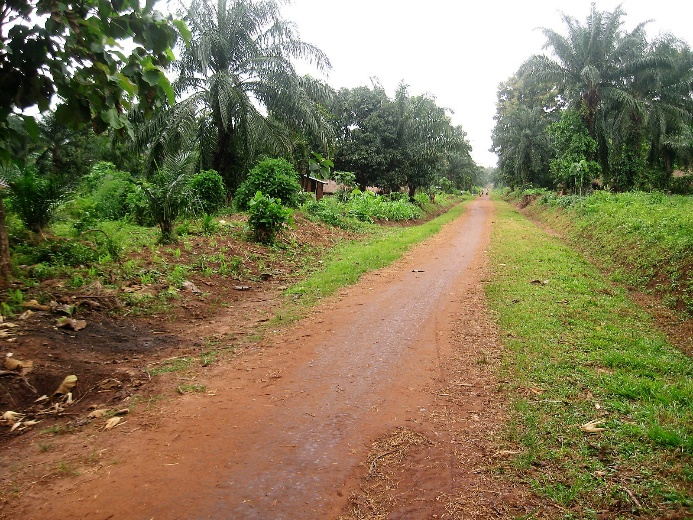Improving the mobility of people and the transportation of agricultural production in Democratic Republic of the Congo
Interventions implemented by the Belgian Development Agency are systematically evaluated on two occasions, at mid-term and at the end of the implementation phase. NTU was awarded the Framework Service Contract for Midterm and Final Evaluations of Projects and Programmes of the Belgian Technical Cooperation (BTC) for the Infrastructure Sector (2013 – 2017). Among other assignments, NTU carried out the Mid-Term Review of the Programme for Improving Accessibility of Rural Areas in Eastern Kasai (PRODEKOR) (2017).
The Programme for Improving Accessibility of Rural Areas in Eastern Kasai (PRODEKOR), with a budget of €20 million, was implemented between January 2014 and October 2018. The global objective of this project was the improved accessibility of the agricultural zones of Eastern Kasaiin order to improve the mobility of people and the transportation of agricultural production from family farmers to logistic centers. Specifically, it aimed at providing users with a priority multimodal network, being sustainable and practicable in all seasons, thanks to rehabilitation and maintenance mechanisms.
The activities implemented by the project were planned to reach the following four main results:
- The project management capacity at provincial level is strengthened
- The multi-modal transportation system, that meets provincial development priorities, is rehabilitated
- A multimodal transport network is maintained through local structures
- The good practices related to the network use are applied.
Within the Mid-Term Review of this project, NTU was responsible to determine if a reorientation of the intervention was necessary, and if so, “why” and “how” it should take place.

Provinces of Eastern Kasai
How we did it
Through the Mid-Term Review of the Programme for Improving Accessibility of Rural Areas in Eastern Kasai (PRODEKOR), NTU answered to the fundamental question: “what’s the performance of the intervention?”. In particular, NTU examined at mid-term the following elements, with a focus on the effectiveness and the sustainability:
- Relevance: NTU assessed if the project corresponded to the priorities and the target groups’ needs as well as the country’s policies and the Belgian Development Agency
- Efficiency: NTU measured the qualitative and quantitative results obtained, in relation to the implemented inputs and the time schedule
- Effectiveness: NTU evaluated how the project’s objectives were reached, or were being reached, taking into account their relative importance.
- Impact: NTU analysed the long-term effects of the project, those being positive and negative, primary and secondary, direct or not, intentional or not.
- Sustainability: NTU analysed the continuation of the benefits from the project, after most of the main support from Belgium has been provided, the likelihood of obtaining long-term benefits, the situation whereby the net benefits are likely to resist the risks.
Impact
The evaluation performed by NTU provided credible and useful information, allowing to integrate lessons learned within the decision-making process both for the beneficiaries and the donor. NTU particularly provided:
- Management support. Based on in-depth analysis, the review provided useful and evidence-based recommendations. It thus supported strategic and operational decision-making, and consequently, the management of interventions.
- Contribution to learning. By analyzing the development process, the review helped to explain what works, what does not and why, and thus draws useful lessons for other interventions, or for the development of new policies, strategies and programs.
- The obligation of accountability to the donor, partners and internal actors by providing an external assessment of the progress made and the results achieved.

Ntalanga agricultural service track on the RN1 to the Kasansa ferry
NTU also assessed the extent to which the project adequately took into account the transversal themes such as gender and environment.
For that purpose, NTU implemented a methodology based on:
- The collection and analysis of documents, taking place throughout the mission
- Interviews and dialogues between key stakeholders concerned by the project, in Kinshasa, Mbuji-Mayi as well as on the field
- Visits to the works’ sites which were achieved, ongoing or planned
